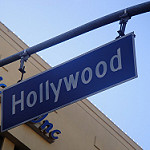Getting multiple agent offers is like getting asked by several potential dates to go to the publishing prom. It might be helpful to remember this: Make sure you are dancing with the right partner once you’re there. Here are five things to consider when your invitation to prom comes.
It amazes me that I’ve been agenting for twenty years. I can still remember my first year, when I might get 100 queries in an entire week. Back then, queries were snail mailed. And we had rotary phones and a typewriter. (Yeah, I’m kidding.) Still, snail mail feels ridiculously quaint. I remember the thrill of seeing Nelson Literary’s first entry appear in Jeff Herman’s big hefty phone-book-like Guide to Book Publishers, Editors & Literary Agents. I also remember thinking that was a huge agent section. If he were to publish that phone book today, I think the literary agent section would be double in size. There has been a big expansion in the last two decades.
And with that expansion comes an interesting observation: We are in the age of the agent beauty contest. This means that “hot” projects often receive multiple agent offers. This is good news for writers, who often feel they don’t have the balance of power tipped in their favor in this industry. They should enjoy being courted by multiple agents and being able to carefully consider and choose representation. Some writers only get one ask (and hey, it only takes one to get the publishing career rolling). I’ve also noticed another, odd trend. Writers who are getting multiple invitations to the publisher prom are simply after as many invitations as possible, as if the high number is some sort of trophy. To quote Bobby Brown, it’s your prerogative.
This goal, however, comes with an unforeseen cost. Here are five things writers might want to consider:
- Getting multiple asks sounds exciting, but if you’ve talked with an author who has done it, it’s incredibly stressful. And exhausting. By the time you hit your fifth call or video chat, they all run together. Even with notes, it’s hard to keep all those conversations straight. (By the way, it’s the same when an author is on submission or when the manuscript is going to a multiple-editor auction.)
- Agents can tell when you are “just not in to us.” You might not think it’s showing, but if you are doing meets just to do them, it’s often conveyed in the body language and vocal tone. Joanna and I have both done meets and have known at the end of the call that the author never intended to sign with us. It’s still the author’s prerogative, but it’s also a waste of our time and the author’s.
- Curate your agent list before you submit. In your heart, if you know a particular agency is not a top choice for you, it’s okay. You don’t need to submit to that agency. We don’t hold it against writers. As mentioned above, lots of agent fishies in the publishing sea.
- If multiple asks to the publishing prom happen, take your time. Allow all agents who have your material a chance to read it. After all, you must have been interested in that agent/agency if you submitted there. Two weeks is a norm, but if that feels too long for you, one week is perfectly respectable—though the less time you give, expect more agents to bow out of the running. If multiple offers happen, you are not obligated to consider or have conversations with all the interested agents. Maybe curate to your top three to five and go from there, but be sure to communicate that decision to any agent who has your submission.
- Last but not least, if your dream agent asks and you just want to say yes, go for it. In that case, just alert all other agents that your project is being withdrawn. I’m incredibly grateful every day that Shelby Van Pelt (Remarkably Bright Creatures) chose me and decided to forego a possible agent beauty contest. She had a small submit list. I also did not exert pressure and allowed her to choose her own timeline for a decision. But man, my outburst of joy when she said yes…her ears are still ringing.
In the end, you want to go to the publishing prom with the right agent because they will not only be your matchmaker for the right editor/publisher, but they’ll also be be your partner for future dances. Or books. Be sure when the music begins, you’re both starting out on the right foot!










